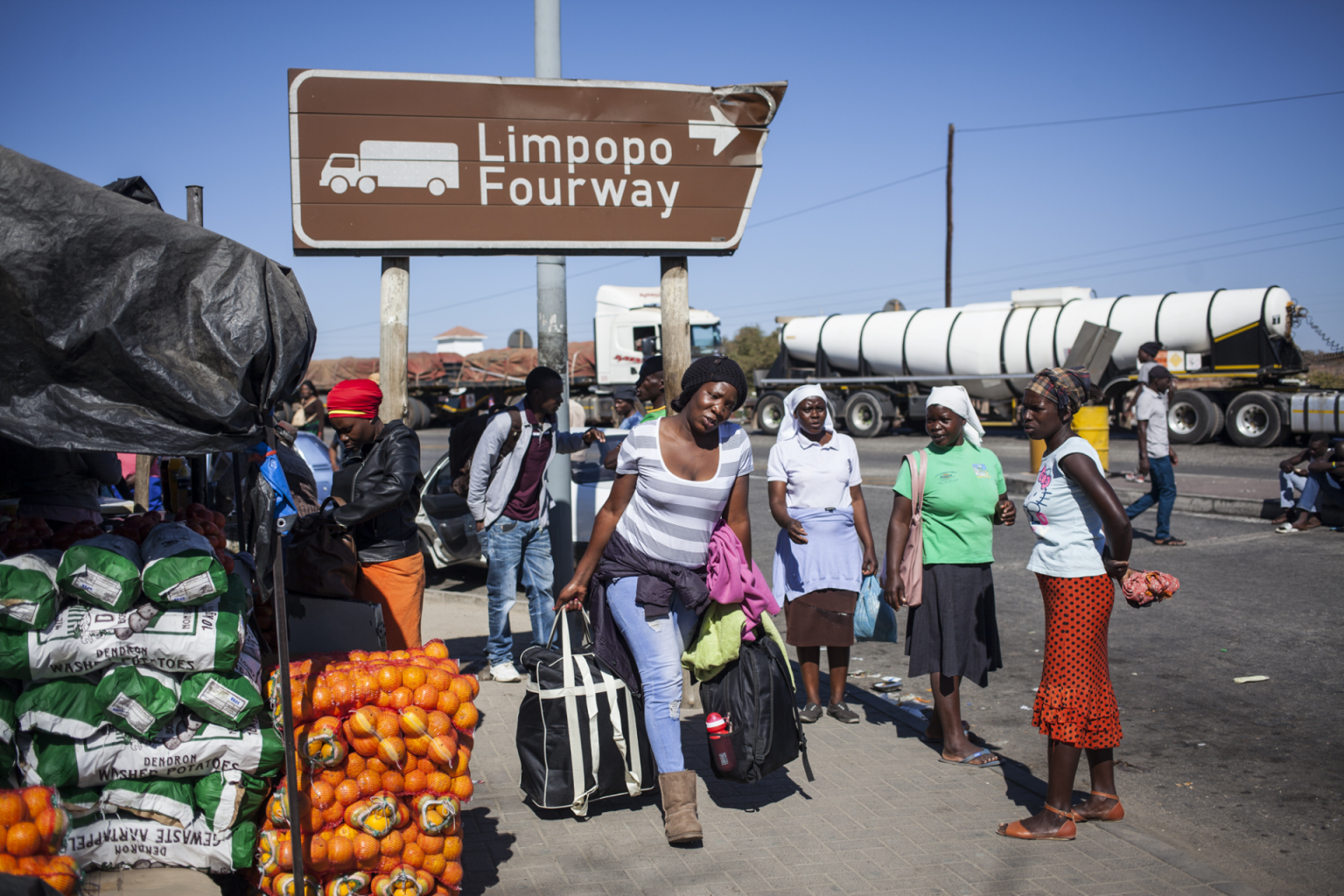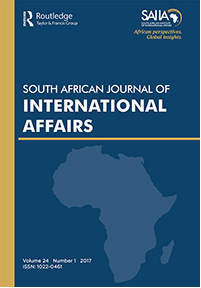Since 1993, SAJIA has offered original and review articles from varied sources, under the auspices of the award-winning South African Institute of International Affairs. It is currently published four times annually, by Routledge of Taylor & Francis.
The SAJIA International Editorial Advisory Board includes Amitav Acharya, Faten Aggad-Clerx, Chris Alden, Daniel Bach, Oladiran Bello, Fantu Cheru, John Dugard, Mervyn Frost, Jorge Heine, Alfredo Tjiurimo Hengari, Thierry de Montbrial, Laurie Nathan, Maxi Schoeman, André de Mello e Souza, John Stremlau, Anthoni Van Nieuwkerk and Alex Vines.

SAJIA Volume 31.4 is now available on the Taylor and Francis website. Featured contributions include an analysis of the geopolitical strategies of Saudi Arabia and the UAE in East Africa through the case of Sudan, and an examination of whether the annulment of Shell’s licenses constitutes expropriation under international investment law. The new issue also includes an examination of the nature of state fragility in South Sudan; insights into carbon pricing dynamics among international actors in sub-Saharan Africa; a study on the role of Limpopo Province in addressing irregular migration into South Africa; and Ghana’s public service delivery in view of the Batho Pele Principles. In addition, the issue includes four book reviews.
Drivers of influence of Saudi Arabia and the United Arab Emirates in East Africa: Evidence from Sudan
Abigail Kabandula and Federico Donelli
State Fragility and its contents: South Sudan’s unruly elite
Steven C Roach
Carbon pricing policymaking among international actors in sub-Saharan Africa: Signs of cooperation or competition?
Charlotte DeBeuf
Addressing irregular migration into South Africa: Paradiplomatic efforts of subnational governments in the Limpopo Province
Samuel Kehinde Okunade
Local governance and public service delivery in Ghana: Assessing the role of selected assembly members vis-à-vis the Batho Pele Principles
William Asante, Patrick Tandoh-Offin and Kingsley Senyo Agomor
DIY Urbanism in Africa: Politics and Practice by Stephen Marr and Patience Mususa
Reviewed by Anna Selmeczi
Drones and Global Order Implications of Remote Warfare for International Society by Paul Lushenko; Srinjoy Bose and William Maley
Reviewed by Lindy Heinecken
The Road to Freedom: Economics and the Good Society by Joseph E. Stiglitz
Reviewed by Michael Nassen Smith
Zambia and South Africa have very different rules for refugees. What can we learn from this? Refugee Reception in Southern Africa: National and Local Policies in Zambia and South Africa by Nicholas MapleReviewed by Alan Hirsch

© All rights reserved South African Institute of International Affairs (SAIIA)
Powered by THINKTEAM